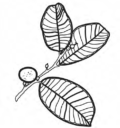The programme
Forest Commons (formerly called Arbres Sauveurs), under our parent organisation Biomimicry Europa, aims to develop innovative reforestation, agroforestry and cross-disciplinary tree-centred projects, focusing primarily on multifunctional trees which comprehensively benefit the natural environment, local populations and the mitigation of climate change, and which respond to the nuanced needs of the regions in which and communities with whom we work, namely in Haiti, Mexico, India and France. Our small-scale carbon compensation programme enables meaningful offset activities, which guarantee longterm sequestration as well as a myriad of associated benefits to local stakeholders and regional biodiversity.
Our key cOncepts at a glance
Contact us
Want to learn more about our team,
our programmes, our actions, or our partners?
Do you have a collaboration to propose,
or would you like to work with us?
Please don’t hesitate to contact us,
we would be happy to hear from you!
